Do you have problematic, acne-prone skin and aren't sure how to properly care for it? There's a wide range of skincare products on the market, making it difficult to navigate. That's why we've compiled all the essential information you need to know about acne skincare into this article. You'll learn about the ingredients acne products should contain, what's suitable for oily skin, and we'll even recommend the best acne products that can help you too.
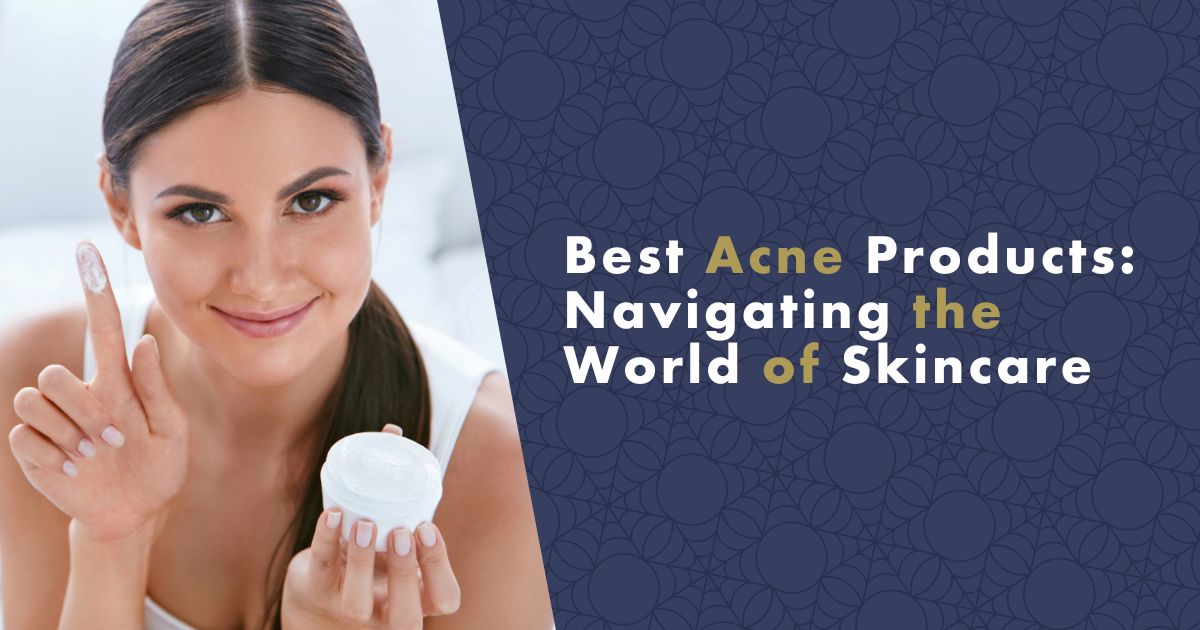
How Acne Skincare Helps
Acne is a common skin issue that affects people during adolescence and adulthood. It manifests with the formation of red pimples, blackheads (known as comedones), and in more severe cases, cysts. Acne most commonly occurs on the face, neck, shoulders, but also on the back or chest.
Tip: What Helps with Back Acne.
Why Acne Occurs
The main cause of acne is excessive production of skin oil, known as sebum. This oil is produced by sebaceous glands located in hair follicles. When these glands are overactive, they produce more oil, which can lead to clogged pores and the formation of blackheads and pimples.
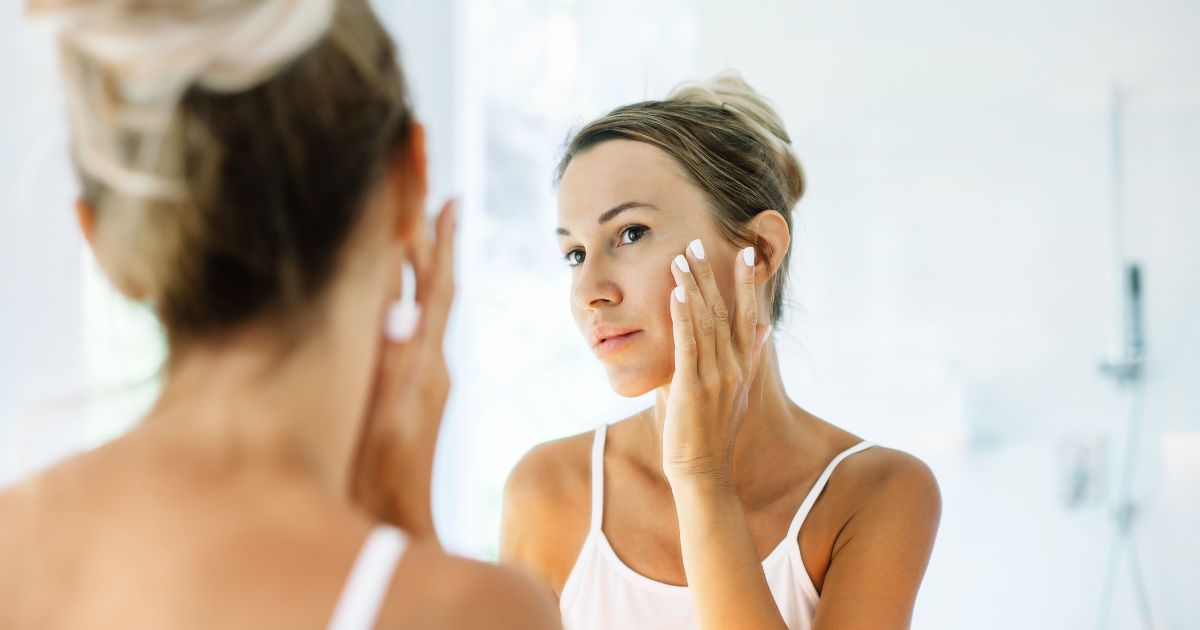
TIP: Do you struggle with blackheads? See what works best for them.
How Acne Products Work
Acne products work by absorbing excess oil and impurities from pimples, drying them out, and selected ingredients penetrate the problem area, where they act to soothe and calm the skin. The ingredients in these products absorb skin oil and impurities in pimples, penetrate deep into the skin, soothe the skin and have antibacterial effects to prevent acne from worsening.
Here's where skincare and suitable acne products come into play, which may include gentle cleansing preparations, acne creams, acne masks, or perhaps acne patches with local effects. Whatever product you choose, make sure it's right for your skin type and contains effective ingredients that work.
#produkty#https://www.nanospace.store/salicylic-acid-2/?order=price
TIP: Do you know what type of skin you have? Test yourself.
Types of Acne and What Works for Them
To choose a product that's right for your problematic skin, let's look at the different types of acne and how they differ. Sometimes, multiple types of acne can occur on the skin.
- Acne comedonica – Mainly characterized by blackheads on the skin surface that are not inflamed. A more severe form may be subcutaneous acne, also known as dermatosis. It's most common in people with oilier skin types. For this type of acne, cleansing products containing salicylic acid are suitable.
- Acne papulopustulosa – Manifests as painful and red pimples, usually inflamed. It commonly occurs in adolescents with oilier skin. Products with antibacterial effects, acne creams, and masks are suitable for this type of acne.
- Acne conglobata – The most severe form of acne, which is very difficult to treat, manifests with pus-filled pimples and cysts that are inflamed and deep. This type also often leaves scars. It occurs in people with excessive production of skin oil, which may be influenced genetically. For this more severe type of acne, it's best to consult a dermatologist, who usually recommends products with retinoids or medications.
Tip: Try Acne Cream NAFIGATE 50 ml
How to Navigate Skincare
The market is flooded with cosmetic products, but how do you determine which ones actually work? It's important to know how to choose skincare that won't worsen acne but rather help heal it.
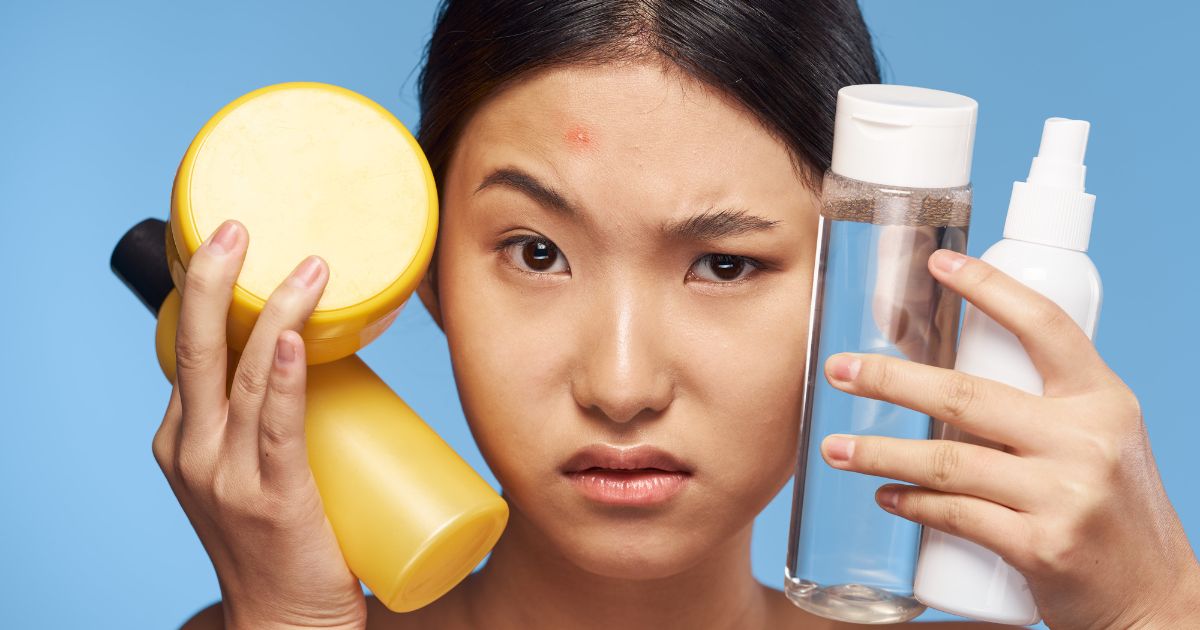
Tip: Want quality and effective skincare containing salicylic acid? Check out our selection.
When choosing, focus on these types of products:
- Non-comedogenic products: Look for products labeled as "non-comedogenic," meaning they won't clog pores and are suitable for acne-prone skin.
- Oil-free products: Oil in cosmetics can exacerbate pore blockage, especially if you have oily skin.
- Gentle cleansing: Acne can cause skin irritation, so opt for gentle and mild skincare.
What Acne Products Should Contain
When selecting acne products, it is important to consider two main active ingredients: salicylic acid, which helps to cleanse pores and accelerate skin exfoliation. And benzoyl peroxide, an effective substance that kills bacteria on the skin and thus helps treat acne.
How Does Salicylic Acid Help?
Salicylic acid is one of the most effective ingredients for caring for problematic and acne-prone skin. It has the ability to regulate sebum production and thoroughly cleanse the skin. It has anti-inflammatory and antimicrobial properties, which are crucial in caring for problematic skin.
Salicylic acid is oil-soluble, allowing it to penetrate into the sebaceous glands, where it effectively addresses acne problems and clogged pores. It penetrates deeply and helps release and cleanse pores.
#produkty#https://www.nanospace.store/search/?string=acne+prone+skin
Tip: Salicylic Acid: Do You Know Its Effects on the Skin?
How Does Beta Hydroxy Acid (BHA) Help?
Beta hydroxy acid (BHA) is a great helper in skincare. It is a type of acid that has the ability to exfoliate the skin. BHA can penetrate pores and help remove impurities and dead cells, thereby improving skin texture and appearance. This acid is also known for its anti-inflammatory effects and ability to regulate sebum production. It's suitable for various skin types and helps maintain healthy and clear skin.
Tip: What Benefits Do Acids Bring in Skincare?
How Does Benzoyl Peroxide Help?
Benzoyl peroxide has effective antibacterial properties. It can eliminate bacteria on the skin, often associated with the formation of inflammatory acne. It also has the ability to exfoliate the skin, removing dead skin cells that can clog pores.
Other ingredients you'll find in acne skincare include:
- Bioflavonoids: These are plant compounds with antioxidant effects. They help protect the skin from UV radiation and assist in regenerating skin cells.
- Retinoids: Retinoids are derivatives of vitamin A and are effective in unclogging pores and preventing new acne formation.
- Hyaluronic acid: Hyaluronic acid helps hydrate the skin, which can be important when using other products that may dry out the skin.
- Glycolic acid: This acid belongs to alpha hydroxy acids (AHAs), which have exfoliating properties and help remove dead cells to improve skin texture.
- Tea tree oil: Tea tree oil has natural antibacterial properties and can help reduce inflammation and fight bacteria on the skin.
- Azelaic acid: Azelaic acid is known for its anti-inflammatory properties and can help reduce redness and swelling associated with acne.
- Niacinamide (Vitamin B3): Niacinamide has anti-inflammatory properties and can help reduce redness and improve overall skin condition.
- Aloe vera extract: Aloe vera has cooling and healing properties and can help soothe irritated and inflamed skin.
#produkty#https://www.nanospace.store/cosmetics:nanobeauty/?pv271=2404
Tip: Do you know nanofiber brightening masks with niacinamide? They provide your skin with a hefty dose of essential vitamins.
Why Knowing the Composition of Skincare is Important
Surely, you know that our body can absorb everything we put on our skin. Therefore, it's important to pay attention to the composition of cosmetic products to avoid introducing harmful substances into our bodies, which our body cannot eliminate and may accumulate. Just as we feed our bodies with healthy food, the same goes for skincare.
Best Acne Products
Now that you know what acne products should and shouldn't contain, let's take a look at how to care for problematic skin and the best acne products. There's no need to have a heap of cosmetic products. Just a few with effective ingredients that work.
Tip: What are the best products with hyaluronic acid?
Patches and Masks for Acne
You can apply products that help locally to cleansed skin. These include, for example, nanofiber acne patches, which are one of the fastest methods to get rid of acne. And if you're bothered by acne on larger parts of your face, then there's an excellent acne mask suitable for all skin types.
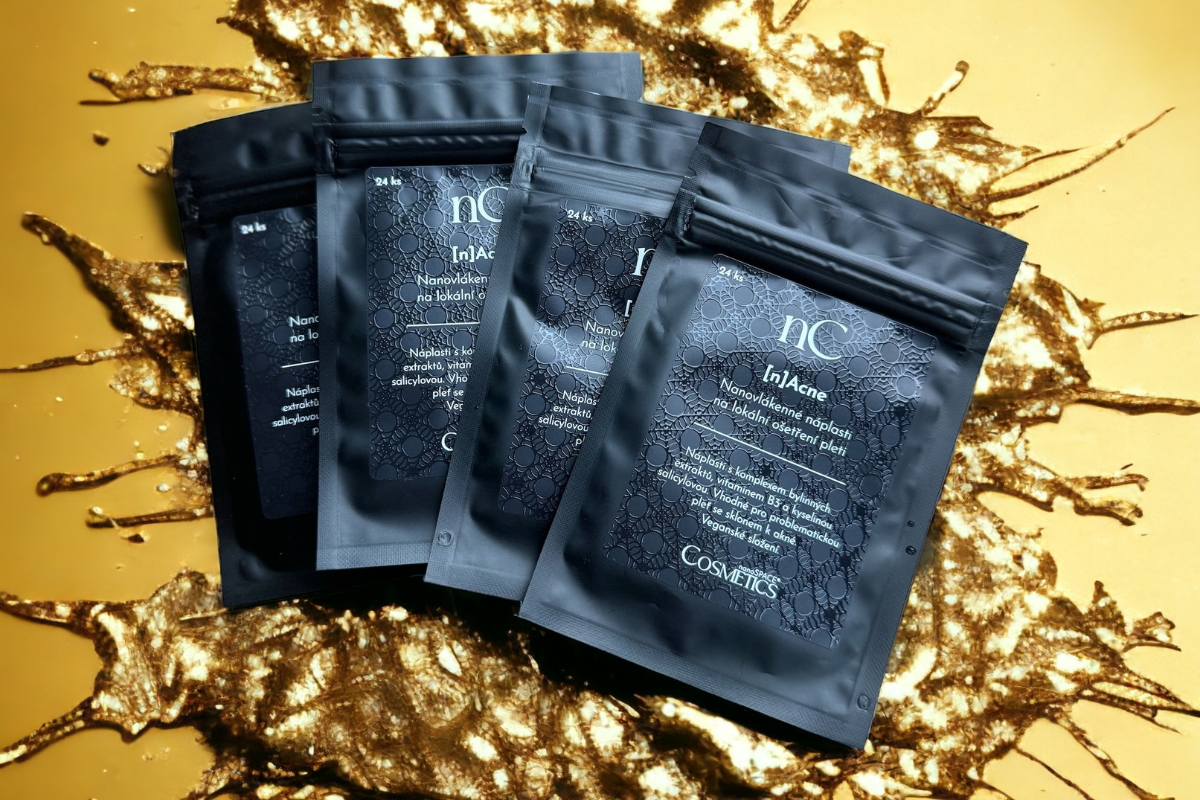
Tip: How do acne patches work and which are the best?
Cleansing Acne-Prone Skin
Throughout the day, dust particles and various impurities settle on the skin, which can worsen acne. Therefore, it's very important to cleanse the skin every day with a gentle cleansing gel for sensitive skin.
Acne Cream
Even though acne is typically associated with oily skin, it's necessary to adequately hydrate the skin with a quality acne cream. Acne cream nourishes the skin and provides it with vitamins. It also has anti-inflammatory effects, preventing the formation of inflammatory acne.
TIP: How to Get Rid of Acne in 1 Day and Is It Even Possible?
Differences in Acne Products in Adulthood and Adolescence
Acne can occur at any age during one's life. Currently, about half of people aged 20 to 29 suffer from acne. However, adult acne may differ from adolescent acne. In adolescence, it's mainly due to hormonal changes and increased sebum production. Therefore, the most important thing is skin cleansing and using antibacterial acne products.
While adult acne can often be caused by stress, improper diet, hormones, or unsuitable cosmetics. Adult acne products should focus primarily on strengthening the skin barrier, calming sensitive skin, and reducing inflammatory acne.
Which Ingredients to Avoid in Skincare
Whether you have problematic skin or not, cosmetic products may contain substances to avoid. They can often clog pores, irritate the skin, or even cause allergic reactions with long-term use.
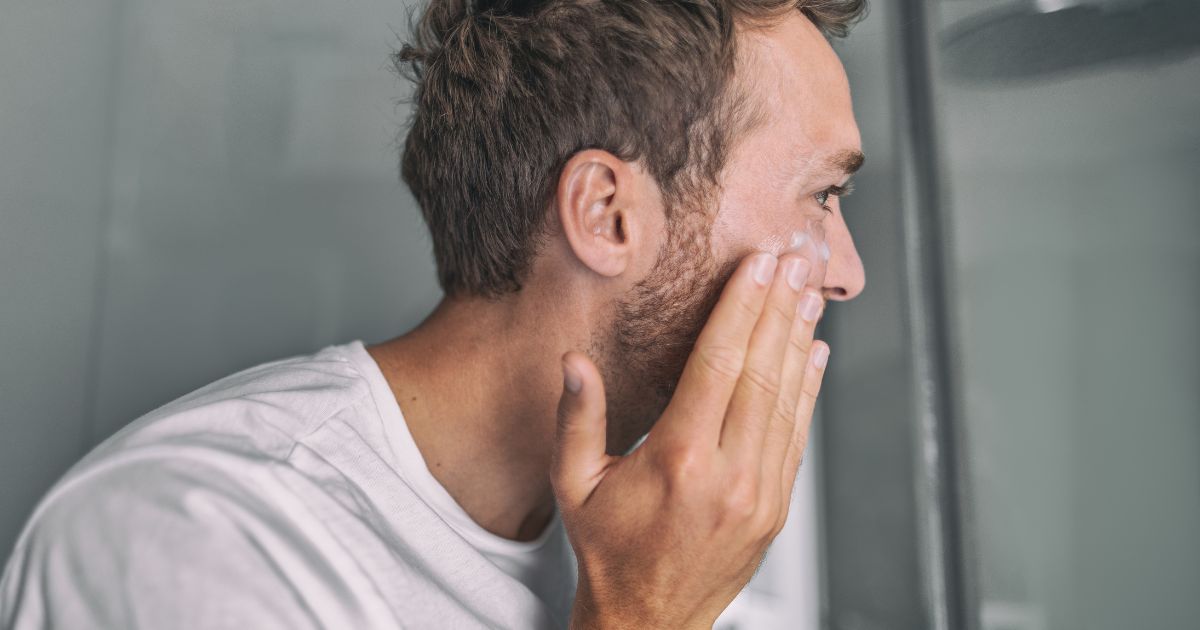
Tip: Adult acne and what works for it
- Parabens: Used in cosmetics as preservatives and also have antibacterial effects. However, with long-term use, they may cause various allergic reactions and irritate the skin.
- Silicones: These synthetic polymers can clog pores and lead to the formation of new pimples. It's advisable to look for products labeled "silicone-free."
- Mineral oils: Mineral oils can create a protective layer on the skin's surface, preventing the skin from breathing and may lead to clogged pores and acne formation.
- Sulfates: Sulfates, such as SLES and SLS, are common ingredients in cleansing products and can dry out the skin and worsen inflammation.
- Oils: Oils, such as coconut oil, may be too greasy for acne-prone skin. It's better to opt for lighter oils, such as jojoba oil, which are suitable even for oilier skin types.
Acne and Natural Cosmetics
Natural cosmetics contain exclusively natural ingredients, such as plant extracts and oils. The advantage is that they are less irritating compared to regular cosmetics. The downside is that they may not contain many active ingredients that fight acne.
Tip: Read about symptoms and how to get rid of hormonal acne
A Few Tips to Conclude
Acne-prone and problematic skin isn't exactly pleasant, but it needs to be cared for with love. To prevent acne from worsening, avoid squeezing pimples and try not to touch your face too much during the day. This just introduces more bacteria to irritated areas, which can lead to inflammation of acne. Also, be careful with makeup. Although it's understandable that everyone would prefer to conceal skin imperfections, sometimes it can do more harm than good.
Frequently Asked Questions (FAQ)
How long does it take for an acne product to start working?
The time it takes to see results varies depending on the specific product and skin type. The fastest acting acne patches or acne masks, which can alleviate acne within a few hours. Some products may show improvement within a few weeks, while others may take longer.
Can acne skincare cause skin irritation?
Yes, some products may cause skin irritation, especially if they're not properly selected for the specific skin type.
How to speed up the healing of acne?
If you see a red pimple on your skin, you can speed up healing with a topical acne product containing salicylic acid. You can use, for example, acne patches, acne cream, or acne masks applied to the affected area.
What is the best way to prevent acne?
Acne prevention includes regular skincare, a healthy diet, and avoiding stressful situations. It's also important to choose suitable cosmetics and monitor the skin's reaction to individual products.
How to recognize an allergic reaction to cosmetics?
Allergic reactions to cosmetics can be recognized by various symptoms, such as itching, redness, swelling, or rashes. If such symptoms occur, you should stop using the product and consult a dermatologist.
Can diet affect acne formation?
Diet can affect acne formation. Particularly, foods high in sugar and fats may worsen skin condition. It's important to maintain a balanced diet.
Can natural cosmetics be used as a substitute for acne treatment?
Natural cosmetics can be useful as part of acne skincare, but may not replace treatment prescribed by a dermatologist. It's advisable to consult a professional when selecting products.
Sources
- HAIDER, Aamir; SHAW, James C. Treatment of acne vulgaris. Jama, 2004, 292.6: 726-735.
- Pullar, J.M., Carr, A.C., & Vissers, M.C.M. (2017). The Roles of Vitamin C in Skin Health. Nutrients, 9, 866.
- SHALITA, A. R. Comparison of a salicylic acid cleanser and a benzoyl peroxide wash in the treatment of acne vulgaris. Clinical therapeutics, 1989, 11.2: 264-267.

